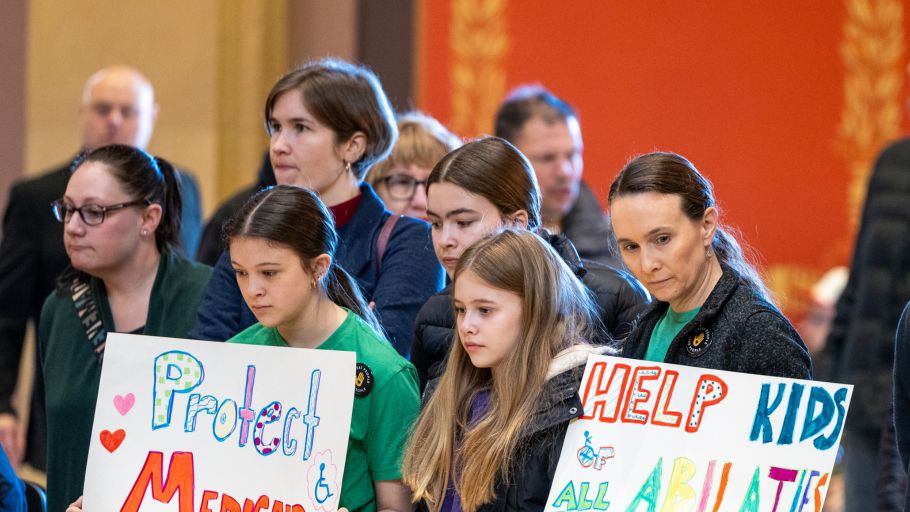A History of Advocacy at Gillette Children's
Gillette Children’s is founded on advocacy over 125 years ago. Before our first patient was served, Jessie Haskins led a pioneering effort to ensure that children with disabilities had a place to receive care. Jessie brought forward an issue to those who could legislatively create change and improve child wellbeing. She was introduced to Dr. Arthur Gillette, who knew she was a powerful ally. They partnered to lobby the Minnesota legislature to establish Gillette Children’s. Our legacy of advocacy for our patients lives on to this day.
Gillette Children's Advocacy Today
Today’s advocacy work at Gillette is done by patients, parents, staff, community members and elected officials. Together, we push for changes that improve the lives of Gillette patients and community members living with rare diseases and/or disabilities. We work with individuals, families and coalitions to identify and eliminate health inequities and disparities.
State Advocacy
Every Minnesota legislative session Gillette government relations staff in coordination with stakeholders advocate for the passage of bills at the state level. This year we’re focused on protecting and expanding Medicaid (called Medical Assistance in Minnesota) coverage, increasing patients’ access to needed technology, and creating more opportunities for public input and transparency within the committee that advises on medications covered by Medical Assistance and MinnesotaCare.
Policy Priorities
This bill would expand Minnesota’s hospital-based Medicaid presumptive edibility program. Currently, Medicaid presumptive eligibility is based solely on income, if this bill passes Medicaid presumptive eligibility would be expanded to cover conditions included in Minnesota’s Newborn Screening Program.
Gillette is supporting the Minnesota Rare Disease Advisory Council on this bill. The bill has bipartisan support in the Minnesota House of Representatives and the Minnesota Senate.
Currently, Medical Assistance (Minnesota’s Medicaid program) covers Augmentative and Alternative Communication (AAC) devices, this bill would require private health plan companies to provide coverage of electronic or non-electronic devices and related software and components, including mounting systems.
The Minnesota Drug Formulary Committee (DFC) is an advisory body of public members appointed by the Commissioner of the Minnesota Department of Human Services. Committee members review and recommend the drugs covered by Medical Assistance and MinnesotaCare through the uniform preferred drug list and determine which of those drugs requires prior authorization. In partnership with the Minnesota Rare Disease Advisory Council, we are advocating for DFC changes related to transparency, conflicts of interest, public participation, streamlining the prior authorization process for liquid medications, and ensuring that feedback from rare disease experts is part of the information gathering and review process before a decision is made on a drug impacting the rare disease community.
A priority for Minnesota counties and the Minnesota Consortium for Citizens with Disabilities (MNCCD), we support this legislation that provides the option of an abbreviated MnCHOICES assessment, with a full assessment only required every three years. As written, this would be an option for waiver recipients ages 22 to 65 years. We would like to see this option expanded to anyone under the age of 65 receiving waivered services. MnCHOICES assessments are intrusive and often traumatic, time-consuming, as well as costly to counties. Simplifying the process will allow waiver recipients to access needed services with fewer delays and make better use of state resources.
The bill has bipartisan support in the Minnesota Senate and Minnesota House.
 Home Page
Home Page

